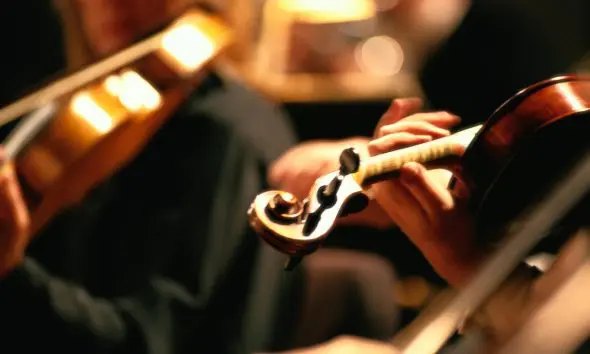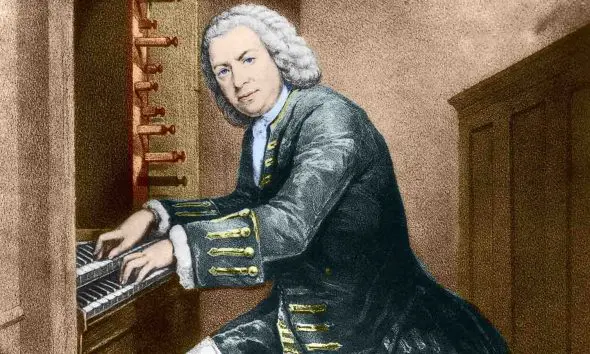The Best Ennio Morricone Film Soundtracks
Discover our selection of the top 10 best Ennio Morricone film soundtracks including ‘The Good, The Bad, and The Ugly.’
Ennio Morricone was born in Rome on November 10, 1928 and he wrote his first composition at the age of six. He studied classical music and, after graduation, began writing scores for theatre and radio. He was hired as an arranger by the RCA label in Italy and also started writing for pop artists. In the mid-1960s he discovered Italy’s contemporary music scene and made boundary-pushing avant-garde music with Gruppo di Improvvisazione di Nuova Consonanza, a collective of experimental, improvisational composers.
But it was his film soundtracks, of course, that brought him the most acclaim. Morricone composed over 500 soundtracks for cinema and television and became famous for scoring the spaghetti westerns directed by Sergio Leone, including The Good, The Bad, and The Ugly and A Fistful of Dollars. In 2007 Ennio Morricone received an honorary Oscar (presented by Clint Eastwood) for his “magnificent and multifaceted contributions to the art of film music” and in 2016, at the age of 87, he won an Oscar for his score to Quentin Tarantino’s film The Hateful Eight. So, without further ado, here’s our selection of the best Ennio Morricone film soundtracks.
A Fistful Of Dollars (1964)
A Fistful Of Dollars, one of Ennio Morricone’s best film soundtracks, was his first collaboration with Sergio Leone and was followed by For A Few Dollars More (1965) and The Good, The Bad and The Ugly (1966). The original liner notes for A Fistful of Dollars noted that “the music matches the excitement note for note, shot for shot” and Morricone’s memorable soundtrack was an integral part of the film’s success.
For A Few Dollars More (1965)
For A Few Dollars More was the sequel to Sergio Leone’s spaghetti western A Fistful Of Dollars. Ennio Morricone’s atmospheric film soundtrack, including whistling, wordless vocals, and the chimes of a watch, builds the tension and complements the dramatic storyline.
The Good, The Bad, and The Ugly (1966)
The Good, The Bad, and The Ugly, Ennio Morricone’s most famous film soundtrack, was the third movie in Sergio Leone’s ‘Dollars Trilogy’ starring Clint Eastwood. The iconic main theme represents the howling of a coyote and includes sounds of gunfire, whistling, and wordless vocals providing the perfect setting for this spaghetti western. This soundtrack is widely considered one of the greatest film scores of all time.
Once Upon A Time In The West (1968)
Sergio Leone’s Once Upon A Time In The West, starring Henry Fonda and Charles Bronson, was released just after the ‘Dollars Trilogy.’ Ennio Morricone’s haunting score features evocative themes for each of the main characters. In a highly unorthodox move, Leone asked Morricone to finish the score before filming had begun, so he could play the music in the background to inspire the actors on set.
The Thing (1982)
Ennio Morricone’s haunting score for director John Carpenter’s sci-fi/horror film The Thing is notable for being one of the composer’s earliest electronic scores. Although John Carpenter often composed his own scores, he was too busy to compose the soundtrack for The Thing and commissioned Morricone, as he wanted a more European sound for the film.
Once Upon A Time In America (1984)
Sergio Leone’s gangster epic Once Upon A Time In America was the great director’s final film. Ennio Morricone’s melancholic score, evoking a nostalgic sense of loss, won a BAFTA Award. Morricone developed musical themes for the film’s characters, including one of his greatest pieces, “Deborah’s Theme,” featuring wordless vocals by Edda Dell’Orso.
The Untouchables (1987)
Brian De Palma’s prohibition-era drama The Untouchables follows the story of mob boss Al Capone (Robert De Niro). Ennio Morricone’s thrilling score was the first of three collaborations (The Untouchables, Casualties of War, Mission to Mars) between the composer and the director. His soundtrack, capturing all the tension and poignancy of the storyline, was nominated for an Oscar and won a BAFTA Award.
Cinema Paradiso (1989)
Ennio Morricone’s beautiful score for Giuseppe Tornatore’s Cinema Paradiso, the story of a boy’s friendship with a cinema projectionist, evokes the film’s themes of love and nostalgia and is one of Morricone’s best soundtracks. Tornatore won the award for Best Foreign Film at the Oscars in 1989, and Morricone’s soundtrack won the BAFTA for Original Film Score in 1991.
Malena (2000)
Ennio Morricone’s bittersweet score for Giuseppe Tornatore’s Sicilian coming-of-age film Malena, starring Monica Bellucci, was nominated for an Oscar. The movie itself was panned by critics, but Morricone’s soundtrack is among his best.
The Hateful Eight (2015)
Ennio Morricone surprisingly won his first Oscar for Best Original Soundtrack in 2016, at the age of 87, for The Hateful Eight directed by Quentin Tarantino. Although Tarantino had previously used pieces by Morricone in his films, this was the first time he had commissioned any composer to write an original film score. This was also the first time Morricone had scored a western film since the release of The Good, The Bad, and The Ugly.
Listen to the Best of Ennio Morricone on Apple Music and Spotify.




